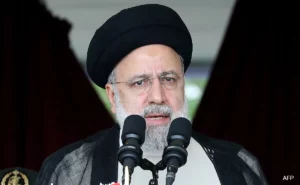Why Taliban Hates Pakistan

Taliban, Pakistan, Afghanistan,
Understanding the Taliban’s Hostility Towards Pakistan
The relationship between the Taliban and Pakistan is complex and fraught with historical grievances, ideological conflicts, and geopolitical tensions. While Pakistan has historically supported the Taliban, the dynamics have shifted significantly since the latter’s return to power in Afghanistan in 2021. This blog explores the roots of the Taliban’s animosity towards Pakistan, examining key factors that contribute to this fraught relationship.
Historical Context
Support for Insurgents
Pakistan’s involvement in Afghanistan dates back to the Soviet invasion in the 1980s when it supported various mujahideen factions, including those that would later form the Taliban. This support was part of a broader strategy to exert influence in Afghanistan and counter Indian interests. However, this support has led to long-lasting resentment among Afghans who view Pakistan as having contributed to their suffering through its backing of militant groups 1.
The Durand Line Dispute
One of the most significant sources of tension is the Durand Line, the border established by British colonial rule that divides Pashtun territories between Afghanistan and Pakistan. The Taliban, like many Afghans, do not recognize this border, viewing it as an artificial division of their ethnic group. This sentiment fuels a broader narrative of irredentism among Afghans who believe that parts of Pakistan rightfully belong to Afghanistan 14.
Ideological Conflicts
Pashtun Nationalism vs. Islamic Nationalism
The Taliban’s ideology emphasizes Islamic nationalism, which sometimes conflicts with Pashtun nationalism. While Pakistan has sought to promote a strict interpretation of Islam to unify its diverse population, it has also been wary of Pashtun nationalism that could threaten its territorial integrity. The Taliban’s rise has complicated this dynamic, as they maintain ties with groups like Tehreek-e-Taliban Pakistan (TTP), which seeks to establish a similar regime in Pakistan 25.
Support for TTP
The TTP is a militant group operating primarily in Pakistan that shares ideological ties with the Afghan Taliban. Following the Taliban’s return to power, the TTP has found refuge in Afghanistan, launching attacks against Pakistani security forces from Afghan territory. This has led to significant frustration within Pakistan, which had expected the Taliban to act against the TTP as a gesture of gratitude for past support. Instead, the Afghan Taliban’s perceived failure to restrain the TTP has intensified anti-Pakistan sentiment within their ranks 23.
Recent Developments
Cross-Border Attacks and Military Responses
In response to increasing TTP attacks originating from Afghanistan, Pakistan has conducted airstrikes targeting these militants across the border. However, these actions have been met with backlash from Afghan leaders and have further inflamed anti-Pakistan sentiment among the Taliban and Afghan populace 5. The perception that Pakistan is violating Afghan sovereignty reinforces nationalist feelings against it.
Public Sentiment and Political Implications
The political landscape in Afghanistan is also influenced by public sentiment against Pakistan. Many Afghans view Pakistani military policies as oppressive and exploitative, particularly regarding treatment of Afghan refugees within Pakistan. This has fostered a narrative that positions Pakistan as an adversary rather than an ally. Consequently, any expression of support for Pakistan within Afghanistan can lead to accusations of being an “ISI agent,” reflecting deep-seated mistrust 14.
Conclusion
The relationship between the Taliban and Pakistan is characterized by a complex interplay of historical grievances, ideological conflicts, and geopolitical realities. While Pakistan has long viewed the Taliban as a strategic ally, recent developments have led to growing animosity from the Taliban towards Islamabad. As both entities navigate this fraught landscape, understanding these underlying factors is crucial for anticipating future interactions between them. The evolving dynamics will likely continue to shape not only bilateral relations but also broader regional stability in South Asia.For further reading on this topic:
- Why Did the Afghan Taliban Sour on Pakistan? – DW
- Pakistan’s Twin Taliban Problem – United States Institute of Peace
- Pakistan and the Afghan Taliban: Friends Becoming Foes – The Diplomat
- Why Pakistan-Afghanistan Tensions Are Soaring – TIME






